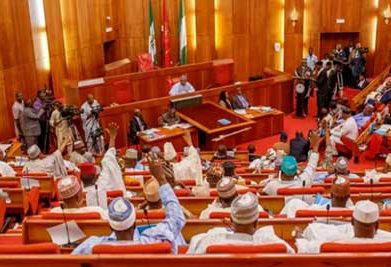…Senate says global EV industry projected to exceed USD 1.5 trillion by 2030
By Henry Umoru
ABUJA — A Bill seeking to provide a comprehensive framework for Nigeria’s transition to electric vehicles (EVs) and green mobility has scaled second reading in the Senate.
The Bill aims to position Nigeria to benefit from the global shift toward green transportation by encouraging investment, innovation, and industrial growth in the electric vehicle sector. It also seeks to guide the country’s gradual shift from fossil fuel–powered vehicles to cleaner, energy-efficient electric vehicles in line with international environmental commitments.
Titled “A Bill for an Act to Establish a Comprehensive Framework for the Transition to Electric Vehicles in Nigeria, Promote Local Manufacturing, Ensure Environmental Sustainability and Drive Economic Growth; and for Related Matters, 2025,” the proposal passed second reading on Wednesday.
Sponsored by the Chairman of the Senate Committee on South East Development Commission (SEDC), Senator Orji Uzor Kalu (APC, Abia North), the Bill was subsequently referred by Senate President Godswill Akpabio to the Committee on Industry for further legislative work. The committee is expected to report back in four weeks.
‘Nigeria Must Not Be Left Behind’ — Kalu
Leading the debate, Senator Kalu highlighted the vast economic potential of embracing electric mobility.
“The global electric vehicle industry is projected to exceed USD 1.5 trillion by 2030,” he said. “Nigeria, with its large population and abundant mineral resources such as lithium and nickel, stands to benefit immensely from local EV manufacturing and battery production.”
Kalu said Nigeria faces twin challenges of environmental degradation and energy dependency, noting that the transport sector accounts for about 25–30% of total greenhouse gas emissions, with more than 12 million registered vehicles—almost all powered by petrol or diesel.
“While advanced nations are electrifying their transport systems, and African economies like South Africa and Kenya have adopted national EV policies, Nigeria risks being left behind if we do not act decisively,” he warned.
Key Objectives of the Bill
Kalu outlined the core objectives of the Electric Vehicles Transition and Green Mobility Bill:
Promote the gradual transition from fossil-fuel-powered vehicles to electric and hybrid vehicles.
Establish the National Electric Vehicle Development and Promotion Council (NEVDPC) to coordinate and regulate EV policies nationwide.
Encourage local manufacturing and assembly of EVs, batteries, and components through incentives and public-private partnerships.
Develop a nationwide EV charging infrastructure.
Begin electrification of public transport with federal, state, and local government fleets before expanding to commercial operators.
Economic and Environmental Justifications
Emphasizing the bill’s significance, Kalu said it is about economic transformation and energy independence, not just environmental protection.
He listed the following benefits:
Job creation: New opportunities in manufacturing, renewable energy, ICT, and technical education.
Energy security: Reduced reliance on imported refined petroleum products through electric mobility powered by locally generated electricity.
Public health: Lower emissions leading to cleaner air and reduced respiratory illnesses.
Describing the bill as “visionary and timely,” Kalu said it aligns with the Federal Government’s drive toward industrial diversification, environmental sustainability, and innovation-led growth.
“By passing this Bill, we will be taking a bold step towards modernizing our transport sector and positioning Nigeria as a leader in Africa’s green mobility revolution,” he added.
The post Bill for transition to electric vehicles, green mobility scales second reading in senate appeared first on Vanguard News.

